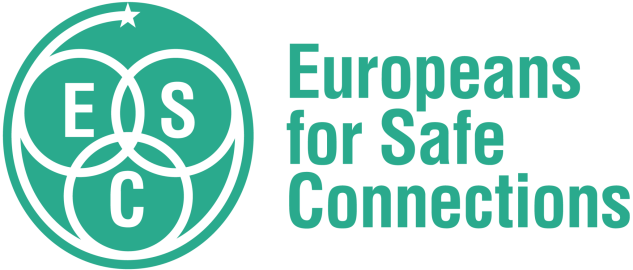
Step by step recognition of EHS in the Netherlands
Last year, the Dutch EHS foundation, Stichting EHS, has achieved a big success towards recognition of EHS as a disability. After several discussions with various official bodies to explore the possibility of declaring the UN Convention on Disability applicable to people with EHS the message is clear: In the Netherlands EHS officially is a disability.
How can this recognition be of help to people with EHS?
For some time now, Stichting EHS has been working step by step to get parties behind the idea that the UN Convention on Disability applies for people with EHS. After our first fruitful meetings with the Ministry of Health, also the Dutch umbrella organisation for people with disabilities, Ieder(in), confirmed to us that people with EHS are covered by the UN Convention on Disability – and accepted Stichting EHS as a member. Read more here.
Another important result was the confirmation to us by the Dutch Institute for Human Rights that people with EHS are covered by the UN Convention on Disability. This institute monitors compliance with the convention. To give a picture of the extent and severity of the EHS problem, we called on the Dutch electro-sensitive people to report to the same. The institute sent comprehensive responses to all those who filed reports. Reporting for Dutch people is still possible.
A new law on equal treatment of people with disabilities or chronic illnesses
In the Netherlands, the UN Convention on Disability has been translated into the Equal Treatment on the Grounds of Disability or Chronic Illness Act (Wgbh/cz). This law stipulates that people with a disability or chronic illness should be able to participate in society like everyone else – at school, at work, on public transport and in their leisure time. Schools, workplaces, shops and companies must ensure full access for all. There is a ban on discrimination and an obligation to make an adaptation. People with disabilities can ask for an adaptation for their own situation. This adaptation must then be proportional.
What does this mean for electro-sensitive people?
The recognition by the Dutch Human Rights Institute means that people with EHS can demand application of the Equal Treatment on the Grounds of Disability or Chronic Illness Act. In other words: if you feel you cannot participate in society because of your electro-sensitivity, you can ask for adjustments by invoking this law.
For example, if you suffer from radiation at work and cannot get a suitable workplace, you can ask for adjustments based on this law, and the same applies if you need to go to a hospital, but cannot because of too much radiation. But that does not mean you will always get what you ask for. The request for an effective adjustment may be rejected if the adjustment is disproportionately burdensome. This can happen, for instance, if the adjustments cost a lot of money or effort, create an unsafe situation or are impossible to carry out.
In case of discrimination, complain to the Institute
If a request for adaptation is refused, the Human Rights Institute can look into whether the refusal of the adaptation was justified. If you feel you are discriminated against as an electro-sensitive person, you can request an assessment by the institute via a complaint form. Then you enter a formal complaints procedure that always involves the other party, such as for instance your employer.
If you are considering filing a complaint, because you consider it promising and your situation is well documented, we at Stichting EHS would like to ask you to contact us at . You will then be directed to an external expert who can look into the probability of success of the complaint and advise you on a possible follow-up. If you are already in a conflict with, for example, your employer and are receiving legal aid, we advise you to pass on the information in this message to your legal aid provider.
Ministry of Health, Welfare and Sport
After acknowledgement by the Human Rights Institute, Stichting EHS has again been in contact with the Ministry of Health, Welfare and Sport. This Ministry, coordinator regarding the UN Convention on Disability, reported the following to us:
“We concur with the findings from your discussions with Ieder(in) and the Human Rights Institute that people with EHS have the right to accessibility and inclusion just like everyone else.”
Further it was mentioned that each ministry is itself responsible for accessible and inclusive policies on specific issues. This means that the Ministry of Health directs us to other ministries on issues within their remit.
Where do we stand now?
Stichting EHS has already achieved a lot in the past year. Ieder(in) as well as the Human Rights Institute and the Ministry of Health have indicated that people with EHS are covered by the UN Convention on Disability. All these organisations can take our interests on board. That is a huge gain.
On the other hand, a lot still needs to be done. The UN Convention and the Wgbh/cz certainly offer opportunities for success. But true inclusion for people with EHS will have to be achieved step by step. That is also the intention of the UN Convention on Disability: step by step increasing accessibility for disabled and chronically ill people.
How do we move forward?
Both Stichting EHS and individuals can play a role in achieving true inclusion of people with EHS. Electrosensitive people themselves can make requests for adjustments related to their own situation, and if necessary file complaints with the Human Rights Institute in the Netherlands. There may be court cases. Then case law will be built up and that can contribute to the overall EHS interest. In other words: these rights need to be claimed on an individual level before it can become general practise.
Stichting EHS will mainly focus on general issues. We will address the government, (interest) organisations and possibly specific individual cases. We will publish important information on our website. Electrosensitive people can then use this information for their individual requests for adjustments.
In summary, we have new and important tools in our hands with the UN Convention on Disability, but improvement in our situation must be built from scratch. There is much work to be done. Stichting EHS will continue to work on this in the time to come. We will keep you informed via the website. And should you have any important experiences: please report them to us.
Source:





Mark
Hi I’m an EHS from outside Netherlands. Can I come to Netherlands to seek asylum or refugee under the UN law for EHS in Netherlands? I’m also thinking of Sweden. My country rejects me so I have nowhere to go. I want to go to Netherlands is that possible?
M R.
Message from someone living in the Netherlands:
Hi Mark
Don’t come to Holland, you will be greeted by an endless shower of radiation anywhere you go, at levels probably among the highest in the world. You better go to the Sahara or to Antarctica, these might be the last safe resorts. But cover yourself with a metal plate, satellites are irradiating them too. This entire businerss is hopeless.
Best wishes and best luck.
François (France)
That’s great news.
The Netherlands lead the way. Let’s home that other countries will follow.
Question: how will the country deal with this law regarding to the “endless shower of radiation anywhere you go” M.R; is talking above ?